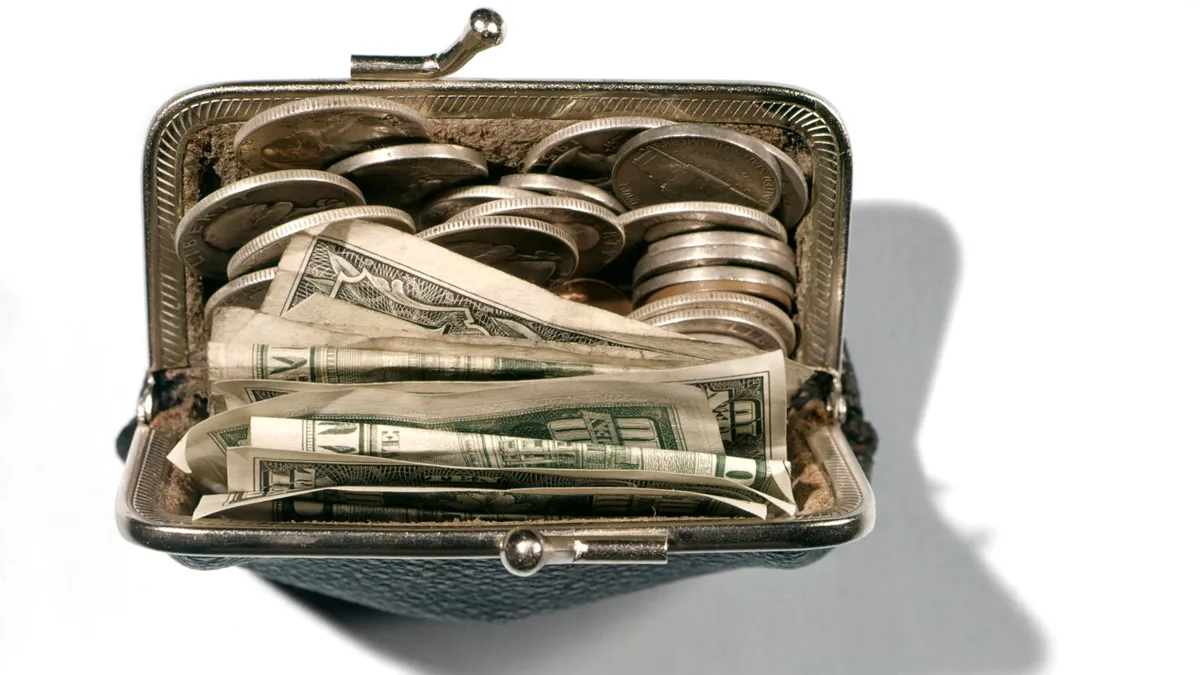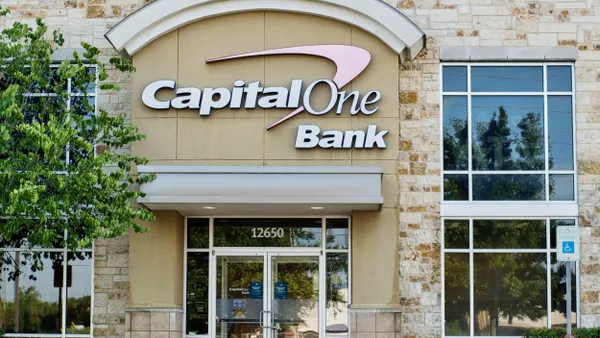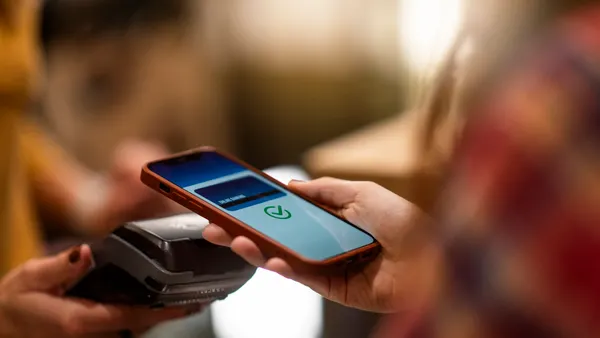Dive Brief:
- Consumers who use Coinstar machines at grocery stores and other venues to convert their pocket change into another form of payment will soon be able to put the money on prepaid debit cards. That service will be available to the general public later this year, CEO Kevin McColly said in an interview last week.
- Coinstar is partnering with the network Mastercard to offer the cards, which will be issued as a virtual card, or customers can choose to have a physical card sent to them, McColly said. The company is testing the service in the market now with a limited group, he said.
- Pricing for the cards isn’t set yet, the CEO said, explaining they may be offered for free, or there could be a fee. There is value to the company in offering it for free, and then allowing consumers to reuse it and gaining “customer stickiness,” he said.
Dive Insight:
Coinstar operates 25,000 coin exchange kiosks at stores and other locations in eight countries in the U.S. and Europe, with some 50 million transactions annually. About 18,500 of those machines are in the United States.
The new Mastercard debit card will add another option for consumers in terms of how they can convert their coins into other payment forms.
“We actually just soft launched it for friends and family a couple weeks ago, and our planned national rollout is sometime in very early Q4,” McColly said in an interview last Tuesday.
The CEO explained how the soon-to-be-offered card will work: “You can literally just go to the Coinstar machine, have a digital wallet on your phone, load it right there at the kiosk, and it’s instantly available for you to go spend as a Mastercard debit card,” he said.
The company generally charges a 12% fee if customers convert their coins to cash, via a receipt they take to cashiers at stores, but it also offers other ways to convert the coins without a fee. For instance, a customer can currently transfer the value to a Starbucks, Home Depot or other store gift card at the kiosk without paying a fee.
For customers that may choose to load the value directly to their bank account, the financial institution may make the service available free-of-charge, or require a fee. A customer can also convert the money to bitcoin and load it onto a digital wallet.
While McColly would not provide financial details, he said the company is profitable. The Bellevue, Washington-based company is owned by the private equity firm Apollo Global Management.
Coinstar hasn’t generally engaged in a lot of marketing in the past, and has instead relied mainly on its green machines at grocery stores to build brand awareness, McColly said. But for the launch of a new service, such as the Mastercard debit card, marketing will be a “critical component,” he said.
Mastercard didn’t immediately have a comment on the new debit card relationship with Coinstar.











